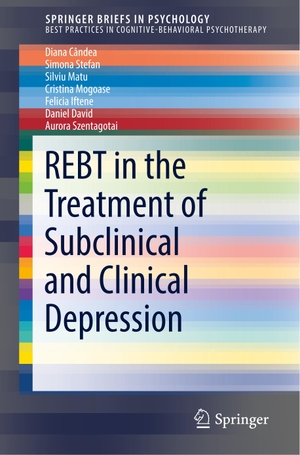Für statistische Zwecke und um bestmögliche Funktionalität zu bieten, speichert diese Website Cookies auf Ihrem Gerät. Das Speichern von Cookies kann in den Browser-Einstellungen deaktiviert werden. Wenn Sie die Website weiter nutzen, stimmen Sie der Verwendung von Cookies zu.
Cookie akzeptieren
Diana Cândea / Simona Stefan / Silviu Matu / Aurora Szentagotai / Felicia Iftene / Daniel David / Cristina Mogoase
REBT in the Treatment of Subclinical and Clinical Depression
- Springer International Publishing
- 2019
- Taschenbuch
- 88 Seiten
- ISBN 9783030039660
The clinical protocols included in this book are focused both on clinical and subclinical depression and are targeted for both adults and youth. After providing a concise overview on depression and the empirical data supporting the clinical protocols, the book illustrates REBT/CBT protocols that provide essential guidance on how to address depression by practitioners at all levels of expertise (e.g. therapists in training and/or more experienced therapists). ¿¿ ¿¿ The field of psychotherapy research is now at a stage where the efficacy (i.e., how treatments work in controlled studies) and effectiveness (i.e., how treatments work in real life) of psychological treatments have been demonstrated for a
Mehr
Weniger
zzgl. Versand
in Kürze